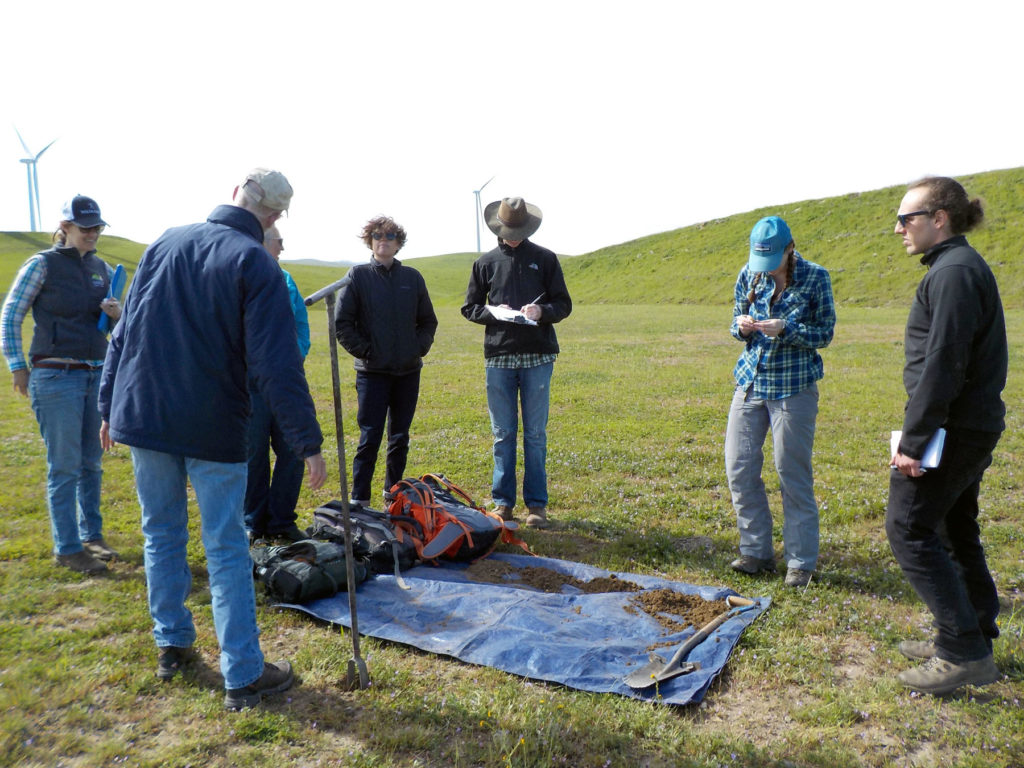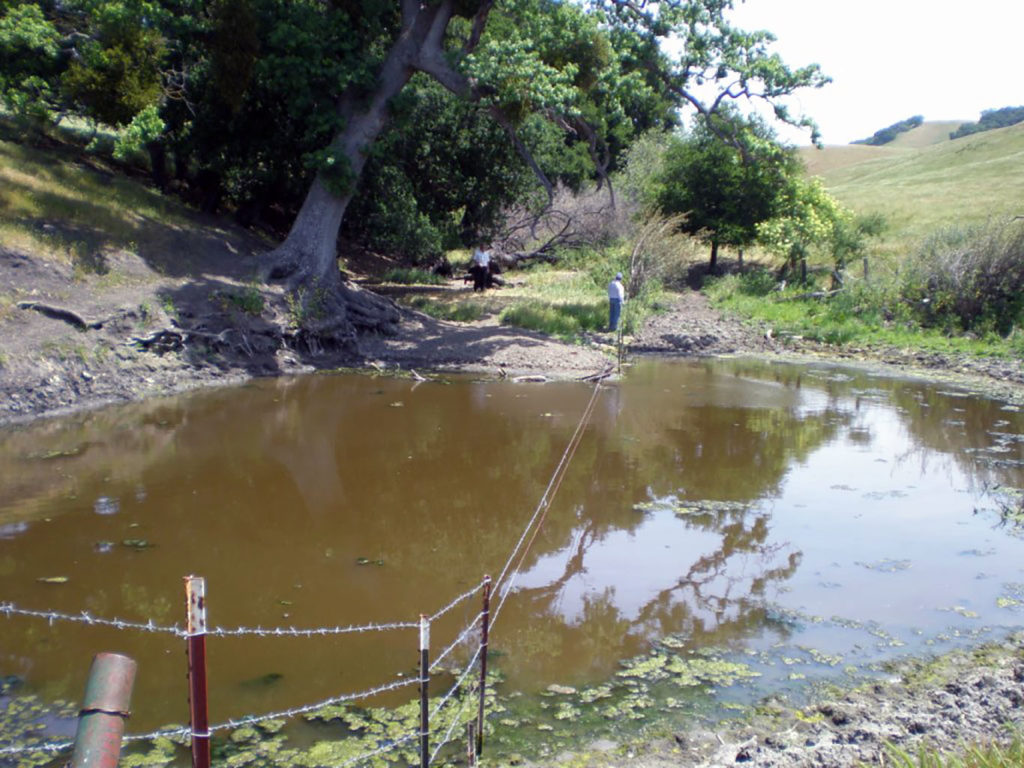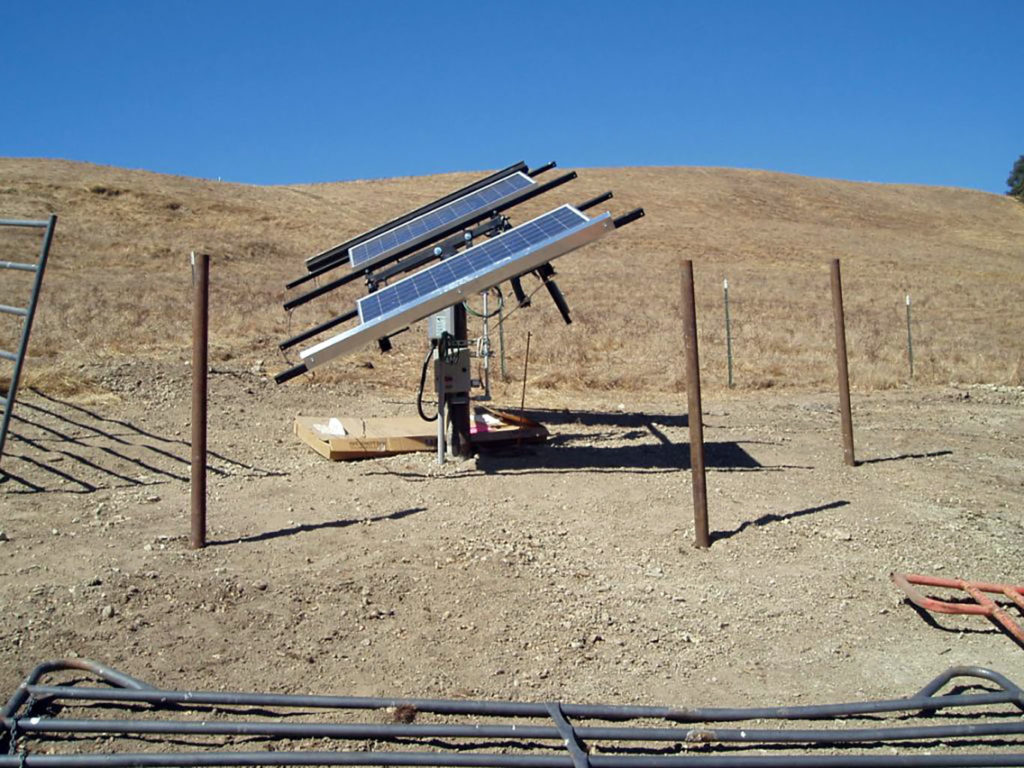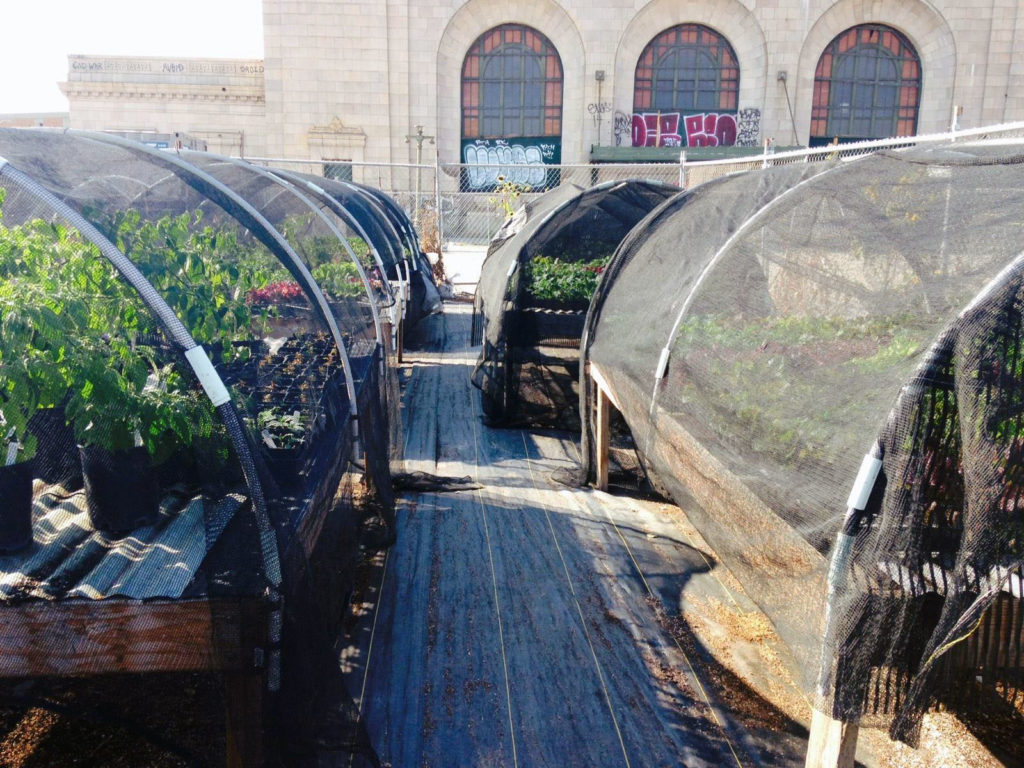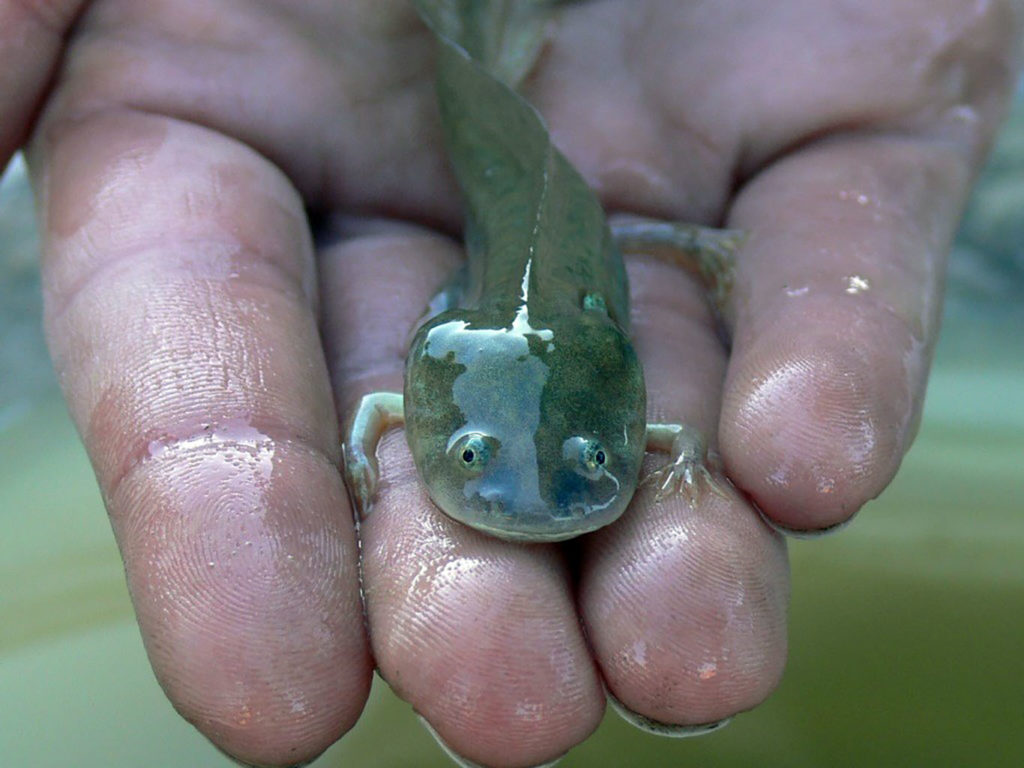Funding Opportunities
If you have a project, and want to know if the RCD or the NRCS can help you identify funding sources, please Contact Us.
Working together, the Alameda County Resource Conservation District (ACRCD) and Natural Resources Conservation Service (NRCS) are here to assist Ranchers, Farmers, and Land Managers with a variety of conservation best practices and funding!
As we head into summer, the ACRCD and NRCS have funding available for specific conservation efforts, and we look forward to working with you! We encourage you to take a few minutes to read about the current opportunities below!
SWEEP Block Grant via Solano Farm Bureau includes Alameda County
Apply today! Deadline 5/31/2024 for the California Department of Food and Agriculture’s State Water Efficiency & Enhancement Program. Up to $200,000 per farm for moisture sensors, low-pressure irrigation systems, pump upgrades, etc.
Visit www.solanofarmbureau.org/sweep-grant or email [email protected].
Regenerative Ranching: 101 Educational Series
The San Mateo Resource Conservation District (SMRCD) is excited to host this series for landowners, rangeland/livestock managers, students, and technical assistance providers.
From August 2024 through April 2025, join them once a month as they gather to visit regenerative ranches across the Bay Area, from Pescadero to Petaluma, to learn from world-class experts from SMRCD, NRCS, TomKat Ranch, Point Blue Conservation Science, and California Farmlink. Connect with your peers as you gain hands-on experience in managing rangelands economically and environmentally regeneratively.
Enroll now at www.sanmateorcd.org/rr101.
HSP Block Grant
New this year, the California Department of Food and Agriculture’s Healthy Soils Program (HSP) is being offered regionally through block grants. ACRCD is a block grant technical service provider – we can assist farmers and ranchers with applications to request funding. Individual agricultural producers can request up to $200,000 in funding to implement a variety of soil-building conservation practices. Applications will be reviewed each month in early 2024 until funding runs out. ACRCD is pleased to offer FREE technical assistance to support planning, monitoring, and implementation of HSP Block Grant projects. Apply by August 1, 2024. Contact Owen Sowerwine at (925) 453-3859 or [email protected] to learn more.
Producers are encouraged to apply early. Socially Disadvantaged Farmers and Ranchers, as well as SB 535 and AB 1550 Priority Populations, should apply, as 25% of the funding is prioritized for these individuals. ACRCD is pleased to offer free technical assistance to support planning, monitoring, and implementation of HSP Block Grant projects. ACRCD staff will be there to support you every step of the way!
|
Examples of HSP Block Grant Eligible Practices |
|
| Practice | Eligible Agricultural System(s) |
| Compost Application | Cropland, Orchard/Vineyard, Grazing Land |
| Cover Crop | Cropland, Orchard/Vineyard |
| Hedgerow Planting | Cropland, Orchard/Vineyard, Grazing Land |
| Mulching | Cropland, Orchard/Vineyard |
| Prescribed Grazing | Grazing Land |
| Range Planting | Grazing Land |
| Residue & Tillage Management: No Till | Cropland, Orchard/Vineyard |
More examples at https://acrcd.org/resources/cdfa-healthy-soils-program/
Contact Owen Sowerwine at (925) 453-3859 or [email protected].
Audubon Conservation Ranching Program (ACR)
Audubon works with ranchers and ranch managers to develop Habitat Management Plans (HMPs) for their properties to improve habitat quality for rangeland-dependent bird species. In Alameda County, many bird species rely on riparian, oak woodland, and grassland habitats to survive. ACRCD partners with producers to complete a HMP and certify land as bird-friendly. The ACRCD currently has funding to develop one more HMP for a rancher in Alameda County, and our waitlist is open. Contact Owen Sowerwine at (925) 453-3859 or [email protected].
Urban & Small Farm Technical Assistance (TA)
FREE TA is available for urban and small farms in Alameda County. TA includes assistance and recommendations regarding conservation practices such as compost application, cover cropping, water use reduction, reduced tillage, integrated pest management, and more! Historically underserved producers are especially encouraged to make use of this free technical assistance. Contact Colleen Hotchkiss to schedule a site visit at (925) 453-3857 or [email protected].
CA Dept of Food and Ag – Conservation Agriculture Planning Grant Program (CAPGP)
This FREE service provided by the ACRCD will assist farmers and ranchers in developing management plans to guide conservation activities and help position producers to access funding to implement the management practices. Plan options include Carbon Farm Plans, Soil Health Management Plans, Pollinator Habitat Plans, and Fish and Wildlife Habitat Plans. All are consistent with NRCS conservation planning standards. Once completed, the plans will help landowners and ACRCD identify management priorities and guide practice implementation. Contact Ian Howell for more information at (925) 453-3858 or [email protected].
Environmental Quality Incentives Program (EQIP)
NRCS works one-on-one with producers to develop a conservation plan that outlines conservation practices and activities to help solve on-farm and ranch resource issues. Producers can apply for financial assistance under EQIP to implement practices and activities in their conservation plan that lead to cleaner water and air, healthier soil, and better wildlife habitat, all while improving their agricultural operations. Examples include the restoration of livestock ponds for wildlife and livestock, installation of livestock water systems, cross-fencing to improve livestock distribution, hedgerows to improve pollinator habitat, and more! EQIP helps producers make conservation work for them. Contact Rose Collins at (925) 453-3869 or [email protected].
Conservation Stewardship Program (CSP)
If you are already taking steps to improve the condition of the land, chances are CSP can help you find new ways to meet your goals. NRCS works one-on-one with producers to develop a conservation plan that outlines and enhances existing efforts, using new conservation practices or activities, based on management objectives for your operation. Producers implement practices and activities in their conservation plan that expand on the benefits of cleaner water and air, healthier soil, and better wildlife habitat, all while improving their agricultural operations. The NRCS is increasing the minimum annual payment for agricultural producers participating in the CSP to $4,000 starting this fiscal year 2024 (which began October 1, 2023). NRCS accepts applications for this program year-round. Contact Rose Collins at (925) 453-3869 or [email protected].
Livestock Pond Restoration
ACRCD and NRCS continue to partner to offer incentives to producers to restore their existing livestock ponds, install livestock water systems to have a direct benefit to livestock ponds, and conduct other voluntary conservation practices through the Alameda County Wildlife-Friendly Pond Restoration Program. This successful program provides producers with streamlined permitting assistance, project planning and design, cost-share assistance, engineering/biological assistance during project implementation, and potential monitoring (including eDNA). During the program’s almost 20 years of service ~70 wildlife-friendly stock ponds have been restored in Alameda County. Is your pond next? Contact Farley Connelly at (925) 453-3860 or [email protected].
The Alameda County Compost for Agriculture Pilot Program (ACCAPP)
The ACCAPP provides technical and financial assistance to agricultural producers to use compost on their land. Compost must be purchased from a licensed compost facility in California. Compost users choose the compost best suited to their needs. This program offers incentives that can cover up to 100% of the material and delivery costs. To fill out the simple application click the link below.
PROGRAM ELIGIBILITY AND ASSISTANCE OPTIONS
| Compost for Agriculture: | SUBSIDY MODEL | DONATION MODEL |
| Eligibility | Commercial agriculture operations | Community gardens, non-profits, historically underserved farmers and ranchers[i] |
| Must manage ground for agricultural purposes in Alameda County | ||
| Program Incentive | 20% of compost & delivery costs, or $10 per ton | 100% of compost & delivery costs, or $60 per ton |
| Program Assistance | Technical assistance with planning compost use, selecting material, etc. | |
Contact the Alameda County Resource Conservation District (ACRCD) for more information and to fill out a simple application form. To be eligible for the Program, participants must sign an agreement with ACRCD before any compost is purchased. ACRCD can help you consider your objectives, select a compost product, and asses your eligibility for any other funding programs.
[i] Includes (1) Limited resource farmer or rancher, (2) Beginning farmer or rancher, (3) Socially disadvantaged farmer or rancher, (4) Veteran farmer or rancher.
Full definitions at: https://www.nrcs.usda.gov/getting-assistance/underserved-farmers-ranchers
Contact Ian Howell at (925) 453-3858 or [email protected].
Coming Soon! Urban Farms Conservation Mini-grants
ACRCD has offered small grants to urban farms for the implementation of conservation projects since 2015. Please stay tuned for the announcement of our 2024 mini-grants, which will include additional funding for farm worker stipends. Projects including native hedgerow and pollinator habitat plantings, compost and mulch application, irrigation upgrades, rain catchment, and more will be considered for mini-grant awards. Request for applications is expected to open in June 2024. To make sure you don’t miss it, sign up for our urban farms email listserv HERE.
Working together, the Alameda County Resource Conservation District (ACRCD) and Natural Resources Conservation Service (NRCS) are here to assist Ranchers, Farmers, and Land Managers with a variety of conservation best practices and funding! Currently, the ACRCD and NRCS have funding available for specific conservation efforts and look forward to working with you. Let us know which of the current opportunities below is best for you by contacting the person listed under each program.
Audubon Conservation Ranching Program (ACR)
Audubon works with ranchers and ranch managers to develop Habitat Management Plans (HMPs) for their properties to improve habitat quality for rangeland-dependent bird species. In Alameda County, many bird species rely on riparian, oak woodland, and grassland habitats to survive. ACRCD partners with producers to complete a HMP and certify land as bird-friendly. The ACRCD currently has funding to develop one more HMP for a rancher in Alameda County, and our waitlist is open. Contact Owen Sowerwine at (925) 453-3859 or [email protected].
Urban & Small Farm Technical Assistance (TA)
FREE TA is available for urban and small farms in Alameda County. TA includes assistance and recommendations regarding conservation practices such as compost application, cover cropping, water use reduction, reduced tillage, integrated pest management, and more! Historically underserved producers are especially encouraged to make use of this free technical assistance. Contact Colleen Hotchkiss to schedule a site visit at (925) 453-3857 or [email protected].
CA Dept of Food and Ag – Conservation Agriculture Planning Grant Program (CAPGP)
This FREE service provided by the ACRCD will assist farmers and ranchers in developing management plans to guide conservation activities and help position producers to access funding to implement the management practices. Plan options include Carbon Farm Plans, Soil Health Management Plans, Pollinator Habitat Plans, and Fish and Wildlife Habitat Plans. All are consistent with NRCS conservation planning standards. Once completed, the plans will help landowners and ACRCD identify management priorities and guide practice implementation. Contact Ian Howell for more information at (925) 453-3858 or [email protected].
Environmental Quality Incentives Program (EQIP)
NRCS works one-on-one with producers to develop a conservation plan that outlines conservation practices and activities to help solve on-farm and ranch resource issues. Producers can apply for financial assistance under EQIP to implement practices and activities in their conservation plan that lead to cleaner water and air, healthier soil, and better wildlife habitat, all while improving their agricultural operations. Examples include the restoration of livestock ponds for wildlife and livestock, installation of livestock water systems, cross-fencing to improve livestock distribution, hedgerows to improve pollinator habitat, and more! EQIP helps producers make conservation work for them. Contact Rose Collins at (925) 453-3869 or [email protected].
Conservation Stewardship Program (CSP)
If you are already taking steps to improve the condition of the land, chances are, CSP can help you find new ways to meet your goals. NRCS works one-on-one with producers to develop a conservation plan that outlines and enhances existing efforts, using new conservation practices or activities, based on management objectives for your operation. Producers implement practices and activities in their conservation plan that expand on the benefits of cleaner water and air, healthier soil, and better wildlife habitat, all while improving their agricultural operations. The NRCS is increasing the minimum annual payment for agricultural producers participating in the CSP to $4,000 starting this fiscal year 2024 (which began October 1, 2023). While NRCS accepts applications for this program year-round, interested applicants should apply by the first application review period, March 22, 2024. Contact Rose Collins at (925) 453-3869 or [email protected].
Livestock Pond Restoration
ACRCD and NRCS continue to partner to offer incentives to producers to restore their existing livestock ponds, install livestock water systems to have a direct benefit to livestock ponds, and conduct other voluntary conservation practices through the Alameda County Wildlife-Friendly Pond Restoration Program. This successful program provides producers with streamlined permitting assistance, project planning and design, cost-share assistance, engineering/biological assistance during project implementation, and potential monitoring (including eDNA). During the program’s almost 20 years of service ~70 wildlife-friendly stock ponds have been restored in Alameda County. Is your pond next? Contact Farley Connelly at (925) 453-3860 or [email protected].
HSP Block Grant
Apply today! New this year, the California Department of Food and Agriculture’s Healthy Soils Program (HSP) is being offered regionally through block grants. ACRCD is a block grant technical service provider – we can assist farmers and ranchers with applications to request funding. Individual agricultural producers can request up to $200,000 in funding to implement a variety of soil-building conservation practices. Applications will be reviewed each month in early 2024 until funding runs out. ACRCD is pleased to offer FREE technical assistance to support planning, monitoring, and implementation of HSP Block Grant projects.
Producers are encouraged to apply early. Socially Disadvantaged Farmers and Ranchers, as well as SB 535 and AB 1550 Priority Populations, should apply, as 25% of the funding is prioritized for these individuals. ACRCD is pleased to offer free technical assistance to support planning, monitoring, and implementation of HSP Block Grant projects. ACRCD staff will be there to support you every step of the way!
|
Examples of HSP Block Grant Eligible Practices |
|
| Practice | Eligible Agricultural System(s) |
| Compost Application | Cropland, Orchard/Vineyard, Grazing Land |
| Cover Crop | Cropland, Orchard/Vineyard |
| Hedgerow Planting | Cropland, Orchard/Vineyard, Grazing Land |
| Mulching | Cropland, Orchard/Vineyard |
| Prescribed Grazing | Grazing Land |
| Range Planting | Grazing Land |
| Residue & Tillage Management: No Till | Cropland, Orchard/Vineyard |
More examples at https://acrcd.org/resources/cdfa-healthy-soils-program/
Contact Owen Sowerwine at (925) 453-3859 or [email protected].
The Alameda County Compost for Agriculture Pilot Program (ACCAPP)
The ACCAPP provides technical and financial assistance to agricultural producers to use compost on their land. Compost must be purchased from a licensed compost facility in California. Compost users choose the compost best suited to their needs. This program offers incentives that can cover up to 100% of the material and delivery costs. To fill out the simple application click the link below.
PROGRAM ELIGIBILITY AND ASSISTANCE OPTIONS
| Compost for Agriculture: | SUBSIDY MODEL | DONATION MODEL |
| Eligibility | Commercial agriculture operations | Community gardens, non-profits, historically underserved farmers and ranchers[i] |
| Must manage ground for agricultural purposes in Alameda County | ||
| Program Incentive | 20% of compost & delivery costs, or $10 per ton | 100% of compost & delivery costs, or $60 per ton |
| Program Assistance | Technical assistance with planning compost use, selecting material, etc. | |
Contact the Alameda County Resource Conservation District (ACRCD) for more information and to fill out a simple application form. To be eligible for the Program, participants must sign an agreement with ACRCD before any compost is purchased. ACRCD can help you consider your objectives, select a compost product, and asses your eligibility for any other funding programs.
[i] Includes (1) Limited resource farmer or rancher, (2) Beginning farmer or rancher, (3) Socially disadvantaged farmer or rancher, (4) Veteran farmer or rancher.
Full definitions at: https://www.nrcs.usda.gov/getting-assistance/underserved-farmers-ranchers
Contact Ian Howell at (925) 453-3858 or [email protected].
- Planting cover crops
- Compost application
- Hedgerows & Wind breaks
- Prescribed grazing
- Riparian Plantings
Application
Potential Funding Sources
- Natural Resources Conservation Service (NRCS)
- ACRCD Grant Funding
- CDFA Healthy Soils Program
Primary Contact(s)
Partners
- Environmental Quality Incentives Program – EQIP
- Wildlife-Friendly Livestock Pond Initiative (see section below)
- Conservation Stewardship Program – CSP
- Agricultural Conservation Easement Program – ACEP
Environmental Quality Incentives Program
The Environmental Quality Incentives Program (EQIP) is a voluntary USDA conservation program for farmers and ranchers to treat natural resource concerns with technical and financial assistance. EQIP provides cost-share funding to promote agricultural production and environmental quality as compatible goals.Examples of eligible projects include:
- Rangeland Management (cross-fencing, water developments, pipelines, tanks, troughs, prescribed grazing)
- Cropland Management (water conservation, cover crop, pest management)
- Wildlife Habitat improvement (pond enhancements, habitat management)
- Vineyards
Eligible farmers and ranchers may apply for EQIP program benefits during open application periods. Application ranking periods are established to allow evaluation of projects and awarding of contracts based upon an environmental score for each application that achieves the natural resource benefits identified by local, state and national priorities.
Eligibility
Read the Program Eligibility Information here.
Application Dates
Year Round
Primary Contact(s)
Links
Partners
Funding Opportunities
Urban Farms Conservation Mini-Grants Program – Applications currently closed – will reopen in Summer 2023
Urban farms are incredibly important to Alameda County – they provide food to areas or people in need, offer educational opportunities, and create islands of habitat in the built landscape. However, finding funding for projects that enhance their productivity and improve their conservation measures can be challenging. Our mini-grant program, in partnership with the California Association of Resource Conservation Districts, Alameda County Flood Control and Water Conservation District, Natural Resources Conservation Service, and UC Cooperative Extension, is geared toward facilitating the installation of conservation practices that enhance soil and water quality as well as habitat on urban farms. We offer small grants of up to $2,500 to help support local urban ag.
Grants may cover the following types of activities:
- Erosion control and runoff reduction measures eg. bioswale, rain garden or filter strips utilizing native, drought tolerant or other appropriate plantings, straw wattles for storm drains, mulching, cover crops, rainwater collection systems.
- Conservation and habitat plantings eg. cover crops, hedgerows, bee and owl boxes, drought tolerant or native plantings.
- Water quality and efficiency improvements eg. irrigation system improvements, compost systems or compost covers, greywater systems.
- Informational Signage eg. weatherproof placards explaining the purpose of a rain garden or filter strip; a sign describing various run-off/erosion mitigation practices and how they support water quality in an adjacent waterway.
For more information on eligible conservation practices, such as those listed above, click here. The list above is a sample and applicants should feel free to propose additional conservation activities that will benefit soil or water resources while supporting production.
Interested parties will submit a brief application describing their conservation needs related to soil, habitat and water quality enhancement as well as the conservation improvements they intend to install. Proposals will include an estimated budget not to exceed $2,500.
- Eligibility: Eligible applicants include urban farms, gardens, and organizations with urban farming programs including faith-based and therapeutic organizations. Project sites must be located within Alameda County.
2022/23 Priorities:
- Farm sites near, adjacent to, or containing a storm drain, creek, channel, or body of water to which farm run-off is likely to flow during a significant storm event.
- Farm sites located in, producing food for, or providing educational opportunities for underserved communities as defined by CalEnviroscreen or the USDA Food Access Research Atlas.
- Efforts by the implementing organization/entity to outreach to the public and educate their neighbors about the benefits of the newly implemented conservation activities are encouraged.
- Re-submission of prior unsuccessful applications will be given extra consideration provided reviewer feedback is reflected in the revised applicationProject sites located within Alameda County Flood Control District Zones 2, 2A, 3A, 4, 5, 6, 9, 12 & 13, including Oakland, San Leandro, Castro Valley, San Lorenzo, Hayward, Fremont, and Newark. For more detail on priority locations click here.
****
Photos credits from L to R: WOW Farm, Kassenhoff Growers, WOW Farm, City Slicker Farms
Program funded and supported by:

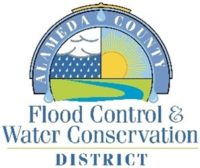
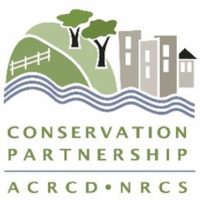
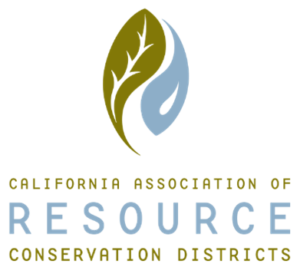
Primary Contact(s)
Partners
Applications are now being accepted for Livestock Pond Improvements through the USDA-Natural Resources Conservation Service’s Environmental Quality Incentives Program (EQIP).
 The Wildlife-Friendly Livestock Pond Initiative is a voluntary program for people who want to rehabilitate livestock ponds for habitat and to provide a reliable source of drinking water for livestock. The program provides cost-share payments to landowners under agreements that are usually vary in duration, depending upon the types of practices to be installed.
The Wildlife-Friendly Livestock Pond Initiative is a voluntary program for people who want to rehabilitate livestock ponds for habitat and to provide a reliable source of drinking water for livestock. The program provides cost-share payments to landowners under agreements that are usually vary in duration, depending upon the types of practices to be installed.
Ranchers are critical to maintaining populations of two listed amphibians that occur primarily on rangelands: the California red-legged frog (Rana draytonii) and California tiger salamander (Ambystoma californiense). Livestock ponds provide alternative, high-quality aquatic habitat for these species and have become a vital feature on the landscape as the amphibians’ natural habitat is lost due to land development and conversion to cropland.
We offer several incentives to support ranchers who want to repair, restore, and manage stock ponds and uplands for habitat, we are offering several incentives:
- Cost share that leverages funds from granting agencies including: USFWS, the Wildlife Conservation Board and the California Coastal Conservancy
- Programmatic environmental permitting through our Permit Coordination Program
- Cost-share through the NRCS’ EQIP program
Apply
Year-round

